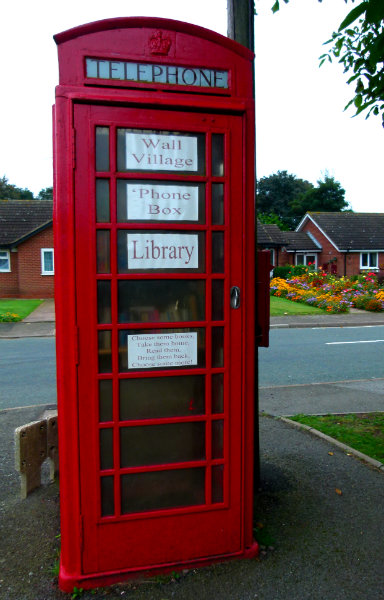
I was curious. Being a writer, I keep seeing articles about the editing software available online to help writers and, over coffee, I thought I would have a quick look. I browsed a number of them, duly pasting a chunk of text into their little blank boxes to see what they had to offer.
After five minutes, my blood was boiling.
Writers, it seems, are being encouraged to use these programmes. Not, as I mistakenly supposed, in order to check their grammar, spelling and punctuation… say, as an extension to spellcheck or as a different perspective on work we are too fond of, and too involved with, to see clearly. No. We are being encouraged to use them in order to erase our personal voice.
Okay, I know… that probably isn’t entirely fair.
There are those who swear by their usefulness, though these, I suspect, are writers who use such programmes as useful adjuncts to, rather than dictators of style. They do give another perspective… almost another set of eyes on your work. There are many who have a story worth telling who have yet to find a literary voice they feel at ease with. There are some who want to write, hearing the stories in their mind, but do not know where to begin to shape a tale. Such software can provide a useful guide. There are others, experienced and not wishing to become complacent, who will appreciate a different slant on the editing process. Many such automated sites are also free and thus accessible to those who cannot afford to outsource either editing or proofreading to the real, live professionals who really know their craft.
But honestly, after the third such site, I was raging… Let me tell you why…
1. The school report
Some will ‘grade’ your writing, judging its accessibility to age and educational levels. Some call it a readability score. Which, of course, is all well and good. You wouldn’t want an entertaining romp to be written in academic terms and, for a children’s piece, it might be useful to be aware of the average language skills of the age group for which you are intending to write.
Of course, you could, potentially, do the unthinkable and actually talk to a child. Or give the book to a child of that age group … I’m fairly sure that as a beta reader they would do a good job. It didn’t do Tolkein any harm.
2. The dictatorship
Some will tell you quite simply – Adverb. Remove it.
Now we all know that the humble adverb has come in for a lot of flak. But if it is good enough for J.K Rowling then I don’t feel we should be too worried by allowing the odd one or two to creep in. In fact, I’m not entirely sure we should worry about them at all, as long as they are well used, well-chosen and serve a definite purpose.
But – Adverb. Remove it?
Grrrr… (should that have three Rs?).
Instead, look at the adverb. Does it actually add anything? Is there a more effective way of saying it? Have you used the odd one, or shaken the pepperpot on the page?
3. The guillotine
Sentences the programme considers too long will be highlighted in virulent colour. As will phrases it considers to be too complex. So, too, will any example of passive voice. Or words of more than one syllable. Or poetry.
You can accept the dictates of the machine and let it hack away at your prose. Alternatively, you can check punctuation. Read the phrase aloud… if it still makes perfect sense and says what you want it to say, leave it alone.
4. The robot.
These programmes do not recognise humour, lyricism or personality. Nor do they understand the informal use of punctuation, the curtailed phrasing or grammatical quirks of speech. You know… as if a human being, not a literary god, is speaking…
Speech, either reported or when writing in a conversational tone, uses a whole different set of unwritten rules. What would be anathema in a literary masterpiece is perfectly acceptable here… and breaks as many rules as it likes.
If what you have written is what your character wants to say and in character… why change it?
5. The alien.
Not only should our phrases be short, snappy and to the point, but, according to the programmed literary rules, we should, it appears, erase all trace of the rich tapestry of human emotion. No flowing and lyrical descriptions here, if you please!
Nor does personality seem to have a place in these programmes. How could it? Can they understand the finer, almost indefinable shades of humour, allusion and pun? Or the emotional associations of words that will vary age to age, culture to culture? Do their emotions unconsciously respond to that creative use of imagery and punctuation that adds an indefinable something to the words? They can only judge by ‘rules’ and since when have artists… including writers… been subject to conforming to a designated mould?
In fact, stick this article into one of these programmes and it will come back, I guarantee, with more colours than a Carnival in Rio. I know. I tried.

Which was one of the things that made my blood boil.
Not, I hasten to add, because I cannot take criticism of my literary ‘masterpiece’… that’s the whole point. This is not, nor was it designed to be, anything other than the type of debate I might have over coffee with a friend. It is neither high romance nor academic paper… though it might well hold a tragedy for writers whose confidence in their own voice may be damaged by the dictates of some sites and the ‘style guides’ that inform them. Which leads me to…
6. The magic mirror.
Some of these programmes are geared towards shaping your work into the style of iconic writers.
Why should we want to write in anyone else’s voice but our own? I doubt if those same iconic writers copied the voices of others. They broke ground for themselves, though were, without a doubt, influenced by what they themselves had read and been moved by. There is a difference between aspiration born of admiration and being subtly edged towards mimicking the style of a writer seen as successful by the establishment. Nothing wrong with the former… but what motivates the latter?
There is a publicity machine behind the Big Names. Publishing is a business, and like any other, its aim is to make money. Nothing wrong with that at all… except that, as with many things, it is seen as safer to go with the known and proven that the unknown and therefore risky.
What worries me is that the programming has to be based on an accepted standard. One that increasingly appears to feel we should dumb down our writing, spelling out everything in words of no more than one syllable.
Kafka, Shakespeare, Twain… and probably all the great writers of history would, without the shadow of a doubt, make my Carnival in Rio look about as colourful as a convent had they used some of these sites!
I doubt there is a writer alive who wouldn’t be happy to earn the delight engendered by Pratchett, the financial success of a Rowling, the respect shown to King, or the love given to the creations of Tolkien. While the imaginations of such writers are undoubtedly incredible, their style and voice is their own and places their signature upon their work. And as such, they no different from the many thousands of others who may never see more than a handful of their own books sold.
But, we can dream… and from those dreams we weave our stories. Not carbon copies, poor relations or mirror images… our stories.
I have broken pretty much all of the literary ‘rules’ in this one article, from parentheses to colloquialisms. If I’ve left any out, do let me know… I did try…
These programmes do have their place. They are tools for writers. They can highlight possible areas of text that would benefit from polishing. They can suggest alternatives. They may boost the confidence of the novice and the clarity of the experienced writer. But they are just that… tools; designed to be of use to the creative mind, not to constrain it within the narrow tramlines of conformity, nor to insult the intelligence of the reader by making books so easy to skim that mind and imagination need barely be involved in the process.
Reading a book is a wonderful thing. A relationship develops between reader and writer, speaking mind to mind and often heart to heart. The writer’s vision has no life at all once it sleeps between the covers of a closed book. It is only awakened by the imagination of the reader following the echo of a writer’s dream.
We love the work of individual authors because they engage us on a particular and intimate level; their words, as much as their ideas, resonate with something within ourselves. They weave language that portrays and evokes human emotion in a way only another human being could understand. They make us laugh, pull at our heartstrings or keep us on the edges of our seats. Because their voices are unique and recognisable. Your voice too is unique and personal… and no computer programme should be allowed to erase or stifle its song.






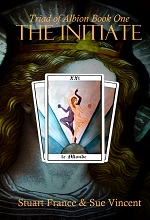



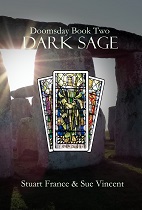






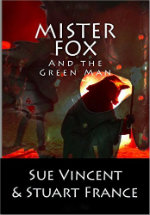

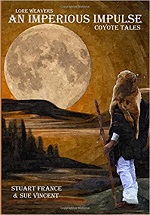

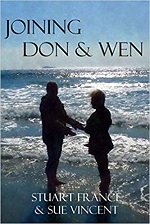





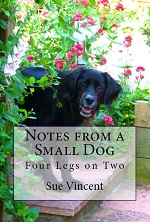



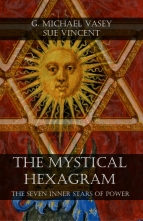



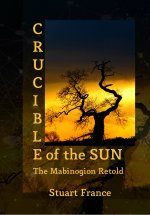


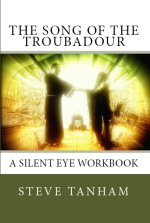
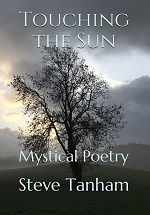

Great post!!! What is so wrong with adverbs, sometimes they make b=me deliriously happy!!! But seriously, I would be afraid using a program like that would make us all robitron writers.
LikeLiked by 1 person
Seriously, they can have their uses 😉 Both the adverbs and the editing programmes…
LikeLiked by 2 people
True – when both are used deliberately in moderation.
LikeLiked by 1 person
That, I think, is the key to it.
LikeLiked by 1 person
As in the Code of the Pirate movies, they’re more like guidelines. :).
LikeLike
They should be… but so often are more like prison bars. 🙂
LikeLike
Reblogged this on oshriradhekrishnabole.
LikeLike
I think my script might look like I’d ‘come out’ as a writer. Thank you for the research, not that I need anyone telling me I need to cull the adverbs. Mind you it does sound like a good places yo go to argue with a machine, one of my father’s specialities. Shame they didn’t exist in his day.
LikeLiked by 1 person
From what I’ve read about him, your father would have had a field day with them had they been around. My son, accidentally getting me on my high horse this morning, suggests I buy a walking stick to wave 😉
LikeLiked by 2 people
Ah the weapon of choice of the curmudgeon. Splendid.
LikeLike
I shall acquire one. Brass headed, I think. With a duck 🙂
LikeLiked by 2 people
My dad inherited from his a sword stick that my brother still has. Family legend has it he ran it through a blacksmiths leg. I wonder…
LikeLike
My great grandad had one… and also the sneaky little spirit flask in the head of the cane. Should I require walking sticks, I may have to get creative 🙂
LikeLiked by 1 person
There’s a career in design that awaits
LikeLike
There’s an idea 😉 ‘Curmudgeon Canes’…
LikeLike
Perfect; I know a few instant buyers
LikeLike
🙂
LikeLiked by 1 person
I have one like that! 🙂
LikeLike
Ah, a kindred spirit 🙂
LikeLiked by 1 person
It was my mother’s cane, and she cut it down to fit her height, but I’m short, too, so when she gave it to me, it still worked fine. Our brass duck has gone on many journeys.
LikeLike
That’s one to treasure 🙂
LikeLike
Adverbs??…what are those then!! lol 😉 They’re probably everywhere and in everything they shouldn’t be in what I write I suspect! Downloaded a grammar test app for my phone recently on basis I’d feel great about my skills in the written language lol haven’t risked the adverbs one yet but average score on the ones done so far…30 percent!!! Hmm mm! ! They do say pride comes before a fall lol 🙂 Editing tools…well certainly don’t need anything else to knock the flagging confidence! I’m pretty sure my writing efforts break all the writing technique rules but having investigated the formalities and tries to work that way that too took away my personal voice and left an empty she’ll of carefully counted woes and phrases with no heart and no colour to them and absolute zero pleasure in writing. So I didn’t. Walked away from any kind of writing for years. What’s the point if you can’t write what’s in your heart and mind and spirit? Now I don’t follow the rules though I’d like to think there was a way to utilise then safely lol but I love when I can sit at my laptop or my tablet and just give free rein to the words and thoughts bouncing around like over excited puppies waiting to be given life! 🙂
LikeLiked by 1 person
Excuse the typing errors! I don’t need an editing tool for those ones but I can’t go back and correct them on here 🙂 It was not me anyway lol its this little tiny wincey keypad on the phone!
LikeLike
If you are attempting to type on a phone, you have both my utmost sympathy and deepest respect 🙂
I agree, the writing has to come from within. Okay, for a book or article going out publicly, spelling, punctuation and grammar do matter… no escaping that! But there are limits to how tightly they should be applied. It has to get personal.
LikeLiked by 1 person
Reblogged this on Barrow Blogs.
LikeLike
Your voice is unique and very personal, Sue and I suspect that’s how all of your followers like it.
Everywhere you look these days, are ‘helpful’ programmes, all guaranteed to make you a best seller. Like you, I have checked them out only to discover they would finally kill off whatever spark of intelligence I have left. My brain is too old to cope with anything more complex than plots of my own making!
LikeLike
The thing is, I think the abrogation of responsibility for thought is more likely to kill off the brain cells than anything else. There are so may wonderful technologies out there now designed to help us, but actually taking away the need to bother thinking… and all the research shows that our brains operate on a ‘use it or lose it’ basis.
LikeLike
Sounds horrific.
LikeLike
It got to me a bit 😉
LikeLike
Reblogged this on Chris The Story Reading Ape's Blog.
LikeLike
Great post, Sue! I’ve never tried one of these programs, but now probably won’t. I have enough trouble with my word program indicating every phrase that is not a sentence, over and over. And bowing to the word gods does change my voice and intention. Your voice is unique, informative, and funny – so NEVER use one of these programs.
I have gotten some rules from an editor and some fairly famous writers that repeat some basic rules about passive tense and too many adverbs. I took them to heart and think my writing has improved, but have put back an adverb for every five they would have deleted. Why have adverbs if not to use them??
LikeLiked by 1 person
These programmes may well be very useful.. but they are not my cup of tea. You might have noticed 🙂
As you say, bad enough with Word throwing blue and red wigglers all over a piece without having whole chunks flaming red at you!
Decent grammar, spelling and punctuation are a must, of course and can’t be replaced, but style matters and it IS what makes each writer unique. 🙂
LikeLike
Great post! This idea that passive voice and use of adverbs should be avoided at all costs drives me up a wall. I agree with Noelle. Why not use them?
LikeLike
“Moderation in all things… including moderation.” Which sort of works in both senses of the word 🙂
LikeLiked by 1 person
Wonderful. Honest and true. Contemporary literature sometimes appalls me. Yet, I struggle to write it as readers guide the market. Meeting genre conventions sometimes mean doing something my heart wants to do differently. How in heaven’s name can we be absolutely original if we don’t break some of those rules?
LikeLike
That’s what I feel, Susan. We have to write the way it feels, or what is the point?
LikeLiked by 1 person
I don need no stinkin editter
LikeLike
LOL 🙂
LikeLiked by 1 person
Interesting post. I tried one of these programs about three years ago. My brain caught fire. This was the most depressing experience of my life. However, it did teach me to cut back on adjectives and adverbs and passive voice. I thought of it as a tool when I realized it could never take the place of a real editor because it was a machine. Everything on offer these days should be taken with a grain of salt. The promises to market products are always far-fetched. 🙂
LikeLike
As a tool, they have their uses, Tess. But you’re right… they have to be used with discretion. Like the salt 🙂
LikeLike
Sigh. Like salt. Yes.
LikeLike
🙂 ❤
LikeLiked by 1 person
I love Rules for Writers — to quibble with, and as fodder for blog posts like this one! You showed admirable restraint, and gave the programs their due as a possibly useful tool, but definitely put them in their place.
LikeLike
Thanks, Audrey. Like spellcheck, I do think they have their uses… like spellcheck, they are far from perfect and accepting everything they say would simply be tragic.
LikeLiked by 1 person
Thanks for taking a look at these programs. I’ve seen promos for them and just couldn’t imagine the point (for myself). Writing and reading is such a human process, the idea that a “program” could edit creative work seems nonsensical. Can you imagine a machine evaluating paintings? Anyway, you confirmed my suspicions. I’ll stick with humans for any feedback beyond spell-check.
LikeLiked by 1 person
They can be a useful thing to use to analyse how you write… but how many of us do that? Most of us just type as fast as we can to keep up with the voices in our heads 🙂
LikeLiked by 1 person
OMG – that’s exactly what it feels like. Ha ha. Love it.
LikeLiked by 1 person
🙂
LikeLiked by 1 person
Well said!
LikeLike
Thanks, Ali!
LikeLiked by 1 person
I haven’t used any of these programs, but as a grant writer I was often asked to write proposals to the style and taste of different bosses, and ended up creating a series of macros that did some of these things, as well as using readability statistics. For this purpose, or for technical writing, or user’s manuals, I can see the point. But for creative writing? AAARGH!!!!
LikeLike
Yes, I can see how they would be useful in that particular set of circumstances, but as you say… not necessarily as relevant for the creative side!
LikeLike
Pingback: Caution: machines wielding red pens! | North of Andover
I was never interested in this type of program. After reading your post I’m even less interested than before. Isn’t writing an art? I guess I should use a program to judge a painting…
LikeLike
That’s sort of my view too. It is one thing getting the technique engrained, another to be enslaved by it.
LikeLiked by 1 person
I was given a “trial” of Grammarly which its company wants to market (it works with a variety of platforms and browsers) to business people and bloggers — for $12/month. I told him I didn’t know anyone who would pay that much for a grammar and spell checker. They told me I should try it anyway. I did. It drove me bananas. It was also full of bugs. I refused to review it further, much less endorse it. There’s a free version available online that works with Chrome if you’d like to try yet one more massively aggravating tool. I disliked it SO MUCH, I deleted every trace of it. $12 a month indeed!
LikeLike
No, thank you 🙂 Spellcheck and hours of poring will do nicely until I can afford the professional services of a human… who would probably be appalled at some of the liberties I take with language 🙂
LikeLike
I would just like a better spellchecker — and something that recognizes a perfectly good word in the wrong place — like ‘or’ when I meant ‘of.’ That happen so much, I make myself crazy 🙂
LikeLike
I think that applies to most of us 🙂
LikeLike
Excellent Sue. I thnk most of these rules are conjured up by pedants who want to crate an iron curtain around publishing. Readers don’t seem to follow the rules when they’re given options. Who knows what the future holds?
LikeLike
That’s a good point, you know! If readers were ‘bound’ by as many rules as writers, I wonder if we’d read half as much as we do?
LikeLike
Brava, well said!
LikeLike
🙂
LikeLike
Tools exist to release our imagination/creativity OR keep us fended in – – – 🙂 All I want is a tool that saves me from myself (spellcheck – who cares about grammar? been breaking that tool for ages now) AND allows me to juggle multiple projects, with one set-up and the ability to out put the proper format to meet a variety of needs – without me having to code every single stinking thing – Work in progress – LOL
LikeLike
LOL… Word and spellcheck work for me 🙂
LikeLiked by 1 person
Since my stroke, I miss homonyms and haven’t found a ‘smarter-than-me” autobot to handle – I meant “write” – I typed “right” – – I meant “cents” I typed “since” – – LOL For now, just grateful those here in the community graciously say, “I knew what you meant – the moment you mis-typed it….” 😀
LikeLike
Word picks up a fair few, but misses some spectacular ones 🙂 I don’t mind too much on the blog, but for the books it just means going cross-eyed for a few days 🙂
LikeLiked by 1 person
Editors, like Babysitters, never earn exactly how much they are worth – – eh? 😀
LikeLike
I doubt they do 🙂 At this moment, I’d happily pay 🙂
LikeLiked by 1 person
For newbies like me a simple spell/grammar check is fine, but for someone that has a lot of writing under her belt, I can see why you are angry. You don’t need someone or something to tell you to change your writing style. I let someone read my unfinished book and she told me that the murder is too far into the book. Okay, but don’t I have to set the scene? Now I know why you should not let anyone read an unfinished text. I wonder if should I remove it from Wattpad.com?
LikeLike
All feedback is good nd reader feedback especially useful, but you do have to know why you wrote it that way… and make your own call on whether or not to change things. It is your story, after all and if change everything to suit everyone it would lose coherence. On the other hand, we can get too attached to them and not want to see their flaws, so outside input is always valuable, 🙂
LikeLike
Reblogged this on .
LikeLike
Most of them are a bunch of hairy sphericules…. Ever since Microsoft started to railroad the process (Poor Will could never have finished half, nay, three quarters, of the Works if he felt intimidated enough by the squiggles and wiggles of AutoSpellCheck… ) it’s been a down hill track…
) it’s been a down hill track…
Perversity is the future. We MUST take pride in the sentences that are (apparently) hard to read… three year olds should be reading Janet and John anyway… 😉 xxx
LikeLike
LOL… nothing wrong with Janet and John 🙂 xxx
LikeLiked by 1 person
Indeed! But we need Winnie the Pooh too… 😀 xxx
LikeLike
… and the Seagull 😉 xxx
LikeLiked by 1 person
Oh good lord, yes! lol
(How’d you remember? 😮 )
LikeLike
Some things don’t get forgotten 🙂 xxx
LikeLiked by 1 person
Love this post! Nice to hear someone else validating my own questioning some of my work when I’ve attempted to put some paragraphs in one of those apps.
LikeLike
They do have their uses… but it is the differnce between blind acceptance and discrimination, isn’t it, Debby? 🙂
LikeLiked by 1 person
😉 Absolutely!
LikeLike
🙂
LikeLiked by 1 person
Nope, nope, nope!! I won’t be using one of those! I sympathize with your blood, and it’s temperature!
Melinda
LikeLike
:D… It cools down fairly rapidly 😉
LikeLiked by 1 person
Good! I’d hate to lose you!
LikeLike
I’d hate to lose me too 😉 Especially to some self important computer programme with a red pen!
LikeLiked by 1 person
haha, right??
LikeLike
😀
LikeLiked by 1 person
Never use adverbs? Um, what is “never”? These rules are just plain silly. The question is, is your writing readable and understandable, and not does it fit some computer analysis.You omitted the dreaded “show/tell”. By that, Tolstoy would never get published now, but I still regard Tolstoy as one of the greatest writers ever.
LikeLiked by 1 person
There are some regions even I will not go… not many… but the infamous ‘show/tell’ equates to the nether regions of writerly hell for me. Some of the grandest books and most beautiful prose I have read have ‘told’.
LikeLiked by 1 person
I agree complete;y with what you have written
LikeLike
Few of the great books would pass muster by modern rules.
LikeLike
I’m having a silent chuckle as we seem to growl so much alike on this subject!
I must admit to being a bit of a literary rebel even. The reason I began writing was because I despaired at the shabby and depressing nature of much of modern literature when my kids were growing up and invading libraries. ( Like me they’ve stayed devotees of Shakespeare, Tolkien, C.S. Lewis and the classics adding in a few select modern authors. )
To my mind the “big brothers” of the editorial world need to “lighten up” a bit I’d adore some more colourful reading, expressive prose, and yes even a few adverbs here and there.
I saw a post by someone explaining (not sure if he was serious but suspect not) that nowadays only writers read well, for most it’s hard work to read a whole book (after growing up on text messages) so please can we pity them and make it short will no hard words. LOL! (I do hope that’s not true.)
LikeLike
I’m afrais that for many it is true… there are too many distractions. Like it or not I’m buying my grandbabies books, Lots of books. Starting with Narnia…
Back to the growling… how many ‘r’s would you recommend in ‘grrr…’ 😉
LikeLike
I’ll go with 3 some extra but not too much lol!
LikeLike
three it is then 😉
LikeLiked by 1 person
I enjoyed your post, but I was disappointed that you did not name the editing programs in question.
LikeLike
That was quite deliberate. My own opinion of them is purely subjective. I know many who swear by these programmes and I would not wish to offend anyone by criticising their choices.
LikeLike
Reblogged this on anita dawes and jaye marie.
LikeLike
Thank you for revisiting and sharing 🙂 x
LikeLiked by 1 person
Found this just today, thanks to a reblog. This robot’s eagle eye spotted this (which I’m guessing has been there for 30 months unnoticed by anyone else, unless they were too kind to mention it!): “it is seen as safer to go with the known and proven that the unknown and therefore risky.”
LikeLike
Thanks, Frank… though with ‘editor’s blindness’ I see only what I intended to write… 😦 The big publishing houses do tend prefer to go with the safe moneyspinners than to take a chance on something a little tangential.
LikeLike
Sanity amidst the chaos! Thank you! 💯💯💯
LikeLike
🙂
LikeLike
Reblogged this on Nesie's Place and commented:
Editing programs are great – but you’re still in charge! 😉
LikeLike
Thank you for reblogging.
LikeLiked by 1 person
You’re welcome – have to share the helpful posts! 😉
Happy New Year!
LikeLike
Happy new year!
LikeLike